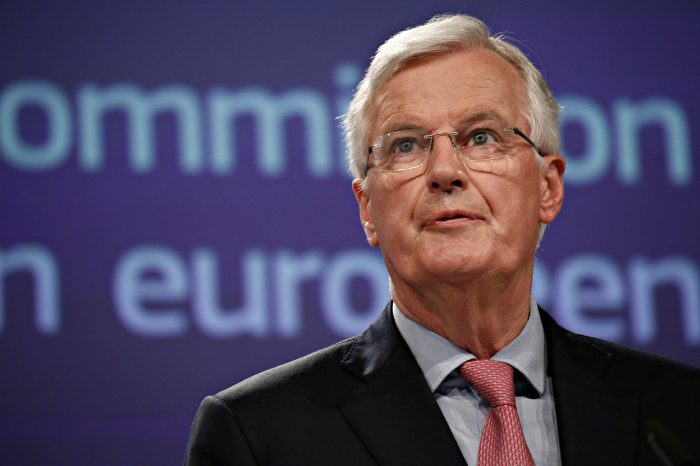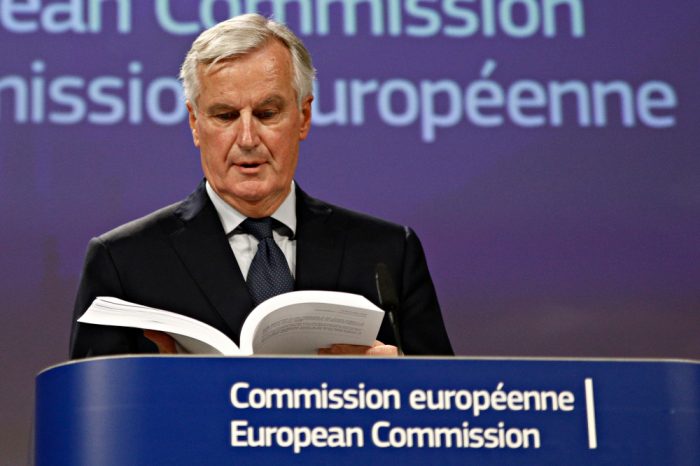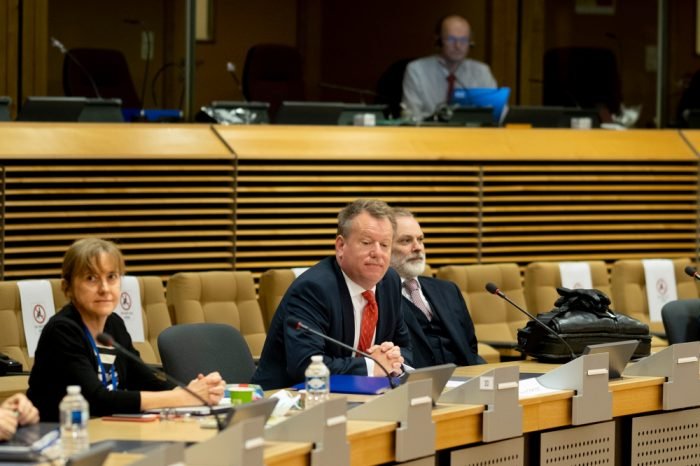Trust – the real loser
It would be all too easy to start panicking over last night’s defeat for the Government. By a very narrow majority, MPs voted to support an amendment which will give them a more realistic vote over the final deal. “Can Brexit be derailed?” some are asking and particular wrath has been directed against the 11 Tory MPs who voted against the government.
As Richard North has pointed out, what took place last night was little more than grandstanding:-
“Since 1972, Parliament has been sitting on its hands, allowing successive EU treaties to be signed. It has then been content to ratify these treaties, holding unto itself only the power to make the decisions as to whether more and more of its powers should be outsourced to Brussels. Then, when it finally came to whether we should leave the EU, the people made the decision, in the face of a parliament that, on balance, supported continued membership. And now that the people have decided and the government is in the process of implementing their decision, some MPs have rediscovered “democracy” and have demanded a vote on the withdrawal settlement negotiated under Article 50.”
Absolutely. There has been much hypocrisy among the supporters of the amendment. Thankfully, however, if MPs reject the final deal with the EU, it would not actually stop Brexit. The vote will still be essentially “Take it or leave it.” No one is talking about halting the Article 50 process. What would happen in the event of a rejection of the deal is that we would crash out of the EU with no trading agreement, which is the last thing the “rebels” would want. After all, if it is the unreconciled remainiac headbangers who end up bearing the blame for a catastrophic Brexit by blocking a deal, it will do little to their credibility if they then start clamouring for us to rejoin the EU.
Dr North’s comments raise a wider issue – trust. Does anyone trust anyone when it comes to Brexit? I receive more than a few e-mails from Brexit supporters who are yet to be convinced that a predominantly remain-voting Parliament led by a remain-voting Prime Minister has any intention of actually taking us out of the EU at all. Our sources, however, have been consistent in telling us that after getting over the shock of the result last year, the great majority of MPs, whichever way they voted, have accepted it and are prepared to do their best to ensure we achieve a successful departure from the EU.
Such an attitude does not necessarily imply any great confidence that the Government team at the sharp end of negotiations can be trusted to deliver a good deal. This year has seen frustratingly little progress in terms of the Government coming up with a Brexit strategy, let alone being able to discuss it with the EU. One can understand the frustration felt among some MPs on all sides and it is vital for us to distinguish between hard core remoaners and those MPs with genuine concerns about the lack of progress thus far. Does the government actually know what it is doing? This is not an unreasonable question to ask.
Of course, there is also a distinct lack of trust between our team and the EU. In a speech earlier this week, Michel Barnier stated that “We will not accept any backtracking from the UK on commitments in the Joint Report.” These words carry the implication that he is worried that we might indeed backtrack. On the other hand, can we trust the EU? Dr Anthony Coughlan believes that senior figures in Brussels are encouraging the Europhile Irish government to be as obstructive as possible. Given the reputation of Jean-Claude Juncker, the Commission president, for dishonesty, such concerns cannot lightly be dismissed.
What will keep Brexit on track in this febrile atmosphere is – in spite of its flaws – our democracy. The scale of the backlash in the event of Parliament halting or derailing the Brexit process would be quite unprecedented. When Mrs May threw her hat into the ring to succeed David Cameron with a promise that “Brexit means Brexit”, she probably hadn’t grasped the scale of the task she was taking on, but she knew that failure was not an option. As a loyal Conservative Party member of many years standing, it must surely be even more obvious to her now than when she became Prime Minister that failure to deliver on her promise would result in her party facing meltdown at the next General Election and most likely, its greatest crisis since the repeal of the Corn Laws in 1846.
For the Tories, a successful Brexit offers more than just the chance of survival. It will enable them to bury the EU issue once and for all. Disunited parties do not win elections and David Cameron was quite right in identifying the EU as one of the most divisive issues for the Conservatives. “Banging on about Europe”, he famously said, had alienated voters. As it happened, he ended up “banging on about Europe” more than he could ever have expected, but even though it finally cost him his premiership, he may have inadvertently given his successor the chance finally to lance the boil of the EU issue which has plagued not only the Conservative Party but British politics as a whole for far too long.
This is not to deny the challenges she faces – and last night’s vote has not made her task any easier. Nonetheless, a successful Brexit opens the doors to a complete overhaul of our political system including the chance to rebuild the trust in our institutions which EU membership has done so much to erode. We would still be a long way from Switzerland where “only a few lunatics” wish their country to join the EU, but if we get out without a major economic crash, it will be a step in the right direction.
Photo by San Sharma 







